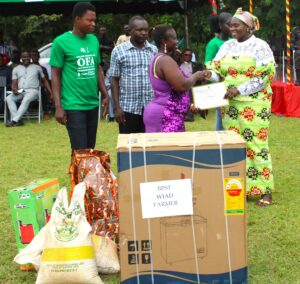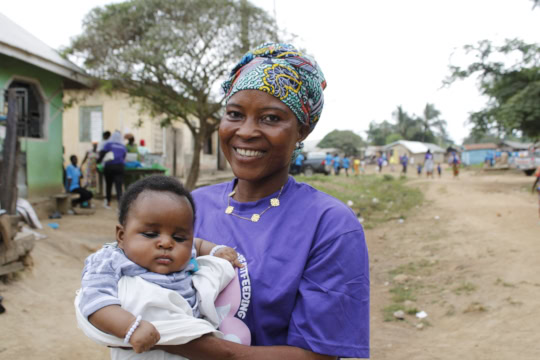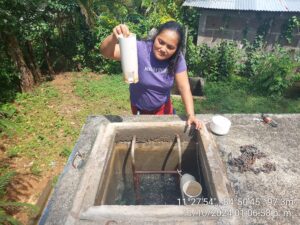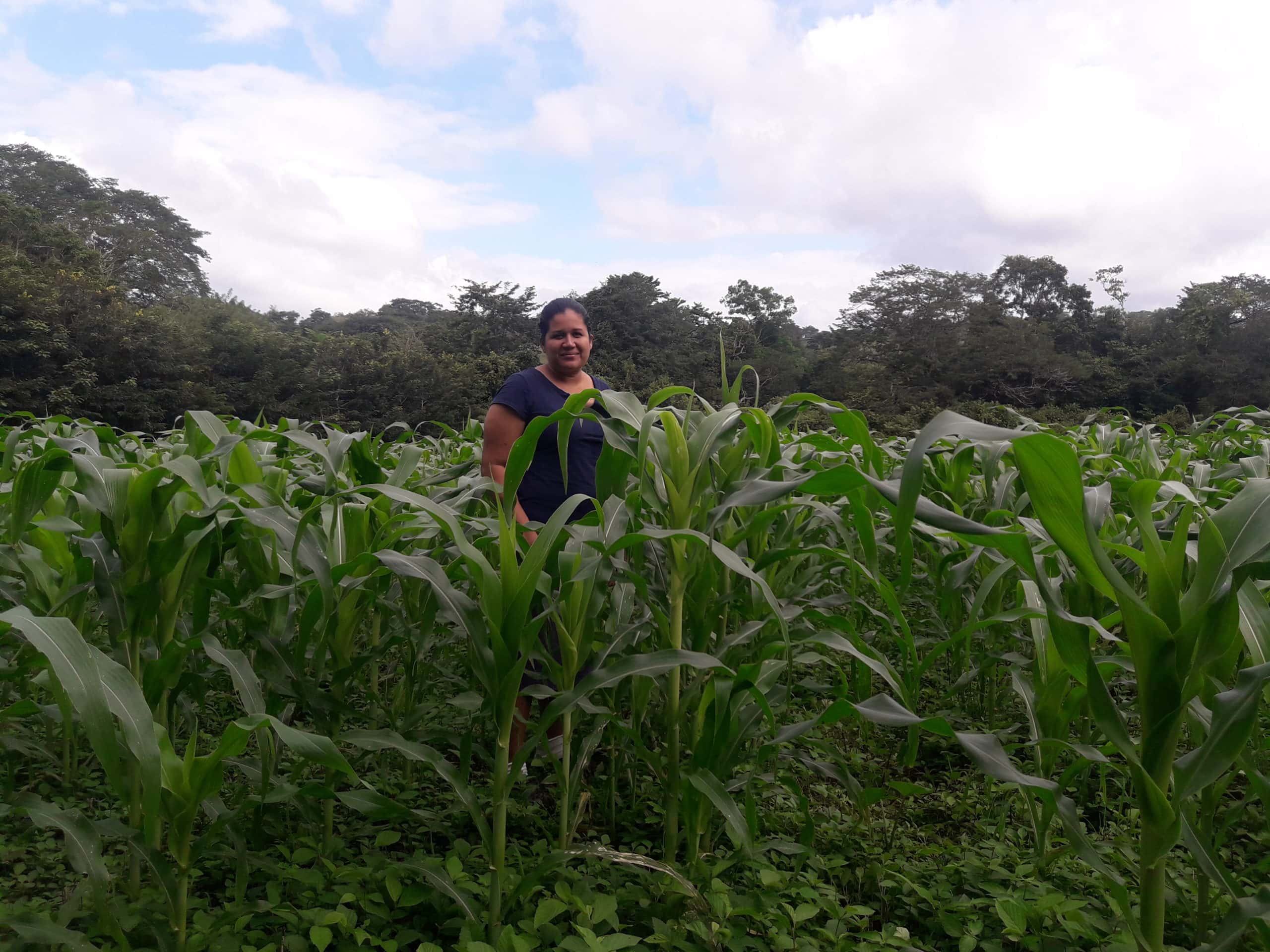
Milagro Discovers Business Benefits in More Than One Self-Help Program
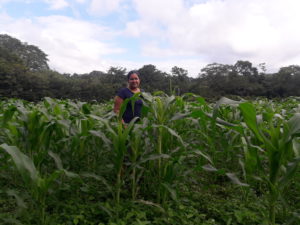 By: Yolanda Fletes Rosales, Women’s Empowerment Program Officer
By: Yolanda Fletes Rosales, Women’s Empowerment Program Officer
38-year-old Milagro lives in Quinta Lidia, Nicaragua and is a member of Self-Help International’s Women’s Empowerment Program. She works as a farmer, growing bananas and yucas and raising hens. She loves being in nature and loves animals.
Prior to devoting herself to agriculture, she depended entirely on her husband Bladimir who worked as a Civil Engineer. However, Bladimir’s company laid him off due to a reduction of staff. To generate income for her family, Milagro decided to work her father-in-law’s land alongside Bladimir.
One day, Milagro’s neighbor invited her to participate in a Women’s Empowerment training. She timidly agreed to attend, and although she was nervous, she was eager to learn how to start a successful business by learning skills like bookkeeping. She quickly became excited by the training and eagerly shared that her business consisted of selling of hens and roosters.
When she heard about Self-Help’s Agriculture Program and farmers’ increased yields of quality protein maize (QPM), she returned home motivated to share what she’d learned at the training with her husband. She wanted to begin cultivating INTA-Nutrader QPM using Self-Help’s double-row technology.
Milagro’s husband was very happy to see the change in her after this training, but had doubts about the value of this type of maize. He visited the Self-Help office to speak with Nicaragua Country Director, Jorge Campos, about his doubts. He couldn’t believe one could sow rows of corn so closely together because he’d never planted in that way.
Jorge explained the process to him and provided technical assistance, encouraging the couple to plant half a manzana (~0.9 acres) as an experiment. Milagro received a $300 USD loan to purchase supplies for the experiment and hoped to get a yield of 60 to 70 quintales (~6,000-7,000 lbs). She was tasked with selecting seed from her yields to guarantee planting for the next cycle. She visited her plot each day with great joy and was so happy when she saw that the maize didn’t have any pests.
Milagro puts the knowledge acquired from Self-Help’s training into action. She keeps accounting records of all the expenses they’ve incurred since they planted their experimental plot. Milagro is the first woman to work with Self-Help in growing corn using the double-row method. She hopes to encourage more women to get involved.
Part of Milagro’s harvest will be sold as commercial corn, another part will be used to feed her hens, and the rest will be marketed for sale as seed corn. At one training, Milagro met Adelaida, the owner of a small restaurant in the community of Laurel Galán. Adelaida agreed to purchase Milagro’s corn. Milagro also planted an experimental plot of beans to have beans for consumption and to gain experience in bean production. She also produces oranges, tamarind, lemons, and sour oranges, for which she hopes to eventually find buyers.

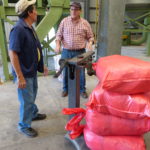 Previous Post
Previous Post Next Post
Next Post